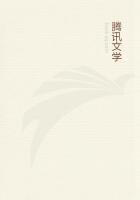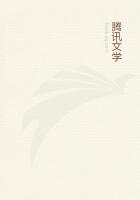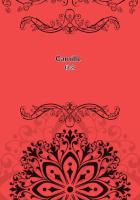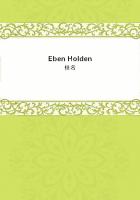Even as early as that he excited in the English mind both curiosity and apprehension. One of the frequent questions put to me, both then and for years afterwards at English dinners, was: "What do you think of the German emperor?"Shortly after his arrival he came on to the Teutonic with the Prince of Wales, afterwards King Edward VII. The prince knew many of the company and was most cordial all around. The emperor was absorbed in an investigation of this new ship and her possibilities both in the mercantile marine and as a cruiser.
I heard him say to the captain: "How are you armed?" The captain told him that among his equipment he had a new invention, a quick-firing gun. The emperor was immediately greatly excited.
He examined the gun and questioned its qualities and possibilities until he was master of every detail. Then he turned to one of his officers and gave a quick order that the gun should be immediately investigated and all that were required should be provided for Germany.
I heard a picturesque story from a member of the court, of Queen Victoria's interest in all public affairs. There was then, as there is generally in European relations, some talk of war.
The queen was staying at her castle at Osborne on the Isle of Wight.
He said she drove alone down to the shore one night and sat there a long time looking at this great fleet, which was the main protection of her empire and her people. It would be interesting if one could know what were her thoughts, her fears, and her hopes.
The queen was constantly assisting the government in the maintenance of friendly relations with foreign powers by entertaining their representatives at Windsor Castle. When General Grant, after he retired from the presidency, made his trip around the world, the question which disturbed our American minister, when General Grant arrived in London, was how he could be properly received and recognized. Of course, under our usage, he had become a private citizen, and was no more entitled to official recognition than any other citizen. This was well known in the diplomatic circles.
When the ambassadors and ministers of foreign countries in London were appealed to, they unanimously said that as they represented their sovereigns they could not yield precedence to General Grant, but he must sit at the foot of the table. The Prince of Wales solved this question with his usual tact and wisdom. Under the recognized usage at any entertainment, the Prince of Wales can select some person as his special guest to sit at his right, and, therefore, precede everybody else. The prince made this suggestion to our minister and performed this courteous act at all functions given to General Grant. Queen Victoria supplemented this by extending the same invitation to General and Mrs. Grant to dine and spend the night with her at Windsor Castle, which was extended only to visiting royalty.
I remember that the Army of the Potomac was holding its annual meeting and commemoration at one of our cities when the cable announced that General Grant was being entertained by Queen Victoria at Windsor Castle. The conventions of diplomacy, which requires all communications to pass through the ambassador of one's country to the foreign minister of another country before it can reach the sovereign were not known to these old soldiers, so they cabled a warm message to General Grant, care of Queen Victoria, Windsor Castle, England.
One of the most defightful bits of humor in my recollections of journalistic enterprise was an editorial by a Mr. Alden, one of the editors of the New York Times. Mr. Alden described with great particularity, as if giving the details of the occurrence, that the messenger-boy arrived at Windsor Castle during the night and rang the front door-belI; that Her Majesty called out of the window in quite American style, "Who is there?" and the messenger-boy shouted, "Cable for General Grant. Is he staying at this house?"I can only give a suggestion of Alden's fun, which shook the whole country.
One of the court officers said to me during the jubilee: "Royalties are here from every country, and among those who have come over is Liliuokalani, Queen of the Hawaiian Islands. She is as insistent of her royal rights as the Emperor of Germany. We have consented that she should be a guest at a dinner of our queen and spend the night at Windsor Castle. We have settled her place among the royalties in the procession through London and offered her the hussars as her guard of honor. She insists, however, that she shall have the same as the other kings, a company of the guards. Having recognized her, we are obliged to yield." The same officer told me that at the dinner the dusky queen said to Queen Victoria: "Your Majesty, I am a blood relative of yours.""How so?" was the queen's astonished answer.
"Why," said Liliuokalani, "my grandfather ate your Captain Cook."One of the most interesting of the many distinguished men who were either guests on the Teutonic or visited us was Admiral Lord Charles Beresford. He was a typical sailor of the highest class and very versatile. He made a good speech, either social or political, and was a delightful companion on all occasions. He had remarkable adventures all over the world, and was a word painter of artistic power. He knew America well and was very sympathetic with our ideals. I met him many times in many relations and always with increasing regard and esteem.
I was entertained by Lord Beresford once in the most original way.















